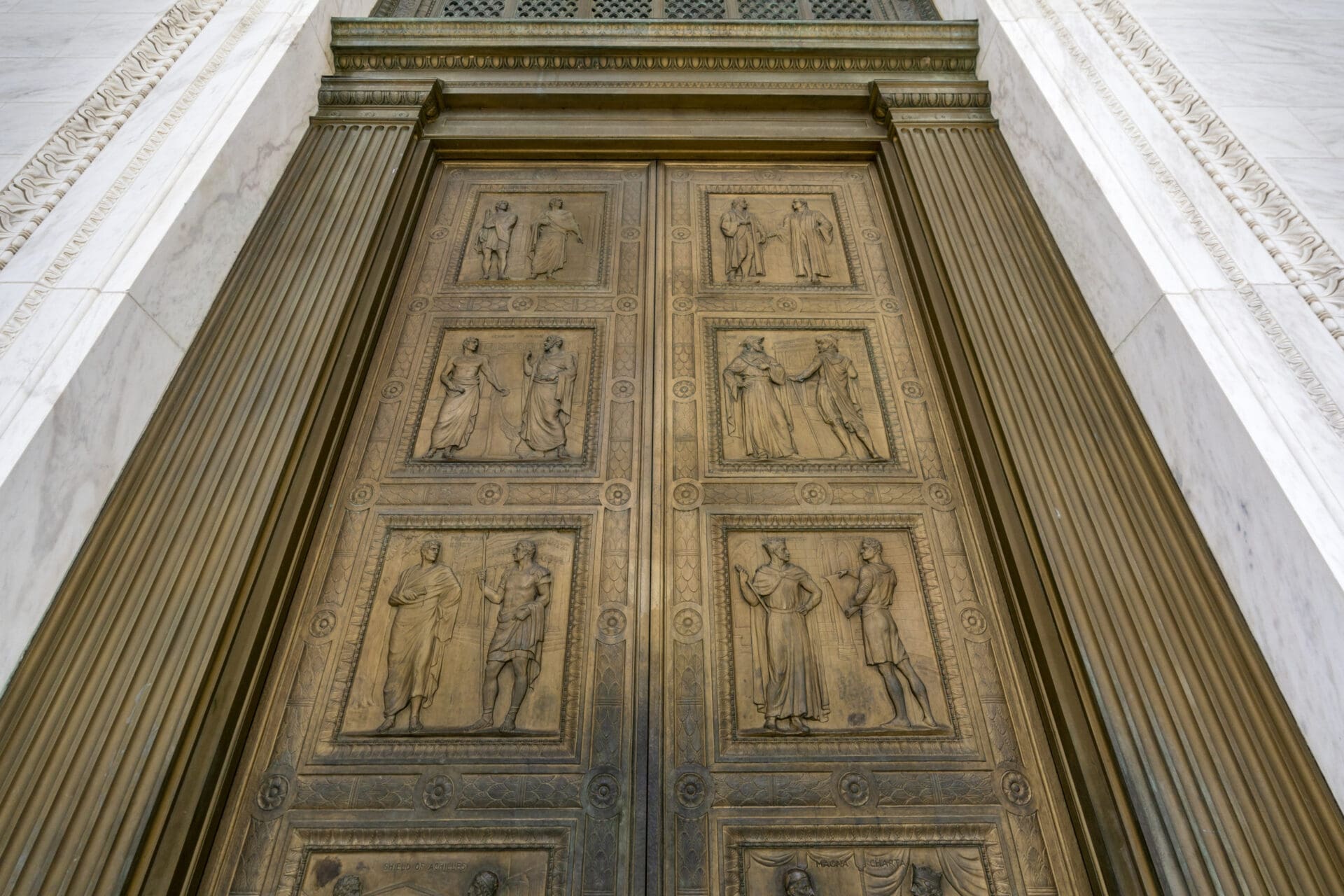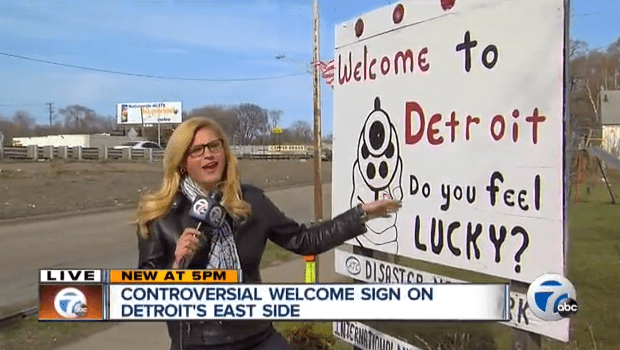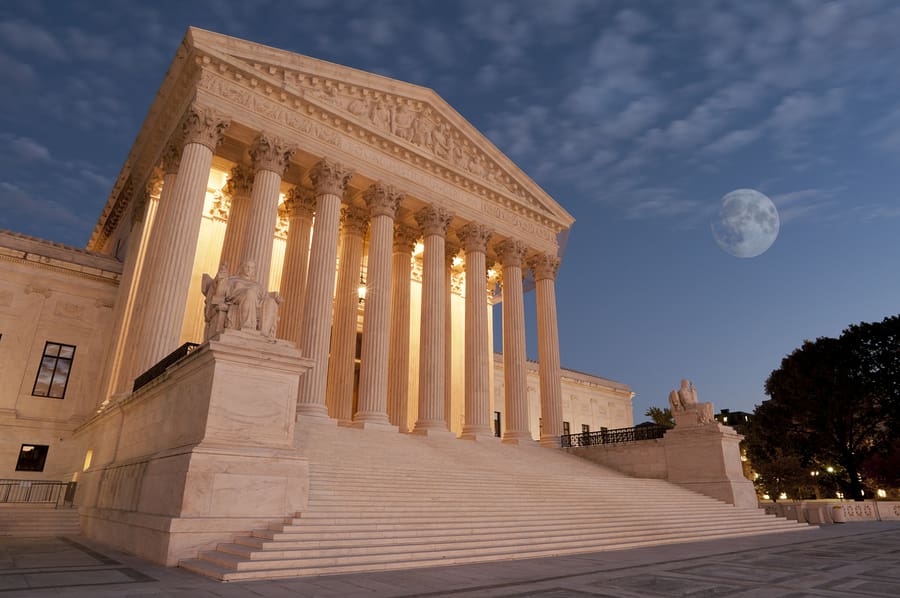By John Velleco
The Bill of Rights establishes express limitations on government power in areas where the Framers knew from history that governments were prone to invade the pre-existing, God-given rights of their citizens.
At Gun Owners of America and our Foundation, our main focus always has been the Second Amendment, but we have filed literally dozens of briefs defending Fourth Amendment rights as well. The reason is obvious. If the government can break into your house, search it, and then seize your property, your gun rights are put at extreme risk.
GOA and GOF addresses this issue again in a recent amicus brief before the Supreme Court in the case of Caniglia v Strom.
One of the legal gimmicks invented by judges to empower the police to violate your Fourth Amendment rights is called the “community caretaking exception.” This rule was created 48 years ago by the Supreme Court in a decision called Cady v. Dombrowski, 413 U.S. 433 (1973).
In that case, after an accident, the police arranged for a car to be towed from a public street to protect the public when the driver was comatose. Since the driver was an off-duty police officer required to have his handgun with him, and the handgun was not found with him in the car, the police searched for it in the trunk to prevent it from being stolen.
The Supreme Court will decide whether the police can use the Cady case to justify a warrantless search of a home for guns, and seizure of guns, ammunition, and magazines.
In the trunk the police found evidence of a crime committed by the comatose police officer. The Supreme Court upheld the warrantless search of the trunk and seizure of the evidence in it.
The rule of the Cady case has become known as the “community caretaking exception,” because the police were not investigating a crime at the time they found evidence of a crime, but rather were seeking to protect the public from a gun being stolen from a car that they had ordered towed.
The car was not in a police lot, but the police had exercised custody and control over the car. The driver was in no shape to move his car, and the police’s control of the car might justify its warrantless search for the gun. But once the camel’s nose is under the tent, it is usually hard to keep the rest of the camel out.
In subsequent cases, the lower courts have often ignored the fact that Cady was grounded in the police having exercised custody and control over the property of the car, and developed the theory that it applied more generally to vehicle searches, supposedly on the theory that cars can be driven away before warrants can be obtained by police.
That expansion of Cady was bad enough, but now, in the Caniglia v. Strom case, U.S. Supreme Court No. 20-157, the Supreme Court will decide whether the police can use the Cady case to justify a warrantless search of a home for guns, and seizure of guns, ammunition, and magazines, because one of the owners of the house might be upset.
The facts of the Caniglia case are important. Mr. Caniglia grew weary of arguing with his wife, and in a grand gesture, took an unloaded handgun, put it down on a table, and said something like — “Shoot me now and get it over with.” There are lots of other facts in the case, but basically the wife stayed elsewhere for the night, could not reach her husband by phone in the morning, and called the police for a “wellness check.”
The two police officers disagreed as to whether Mr. Caniglia was still upset that morning, but he was convinced to go to the hospital to get checked out. He agreed to go only after being promised by the police that they would not take his guns. That was a lie, as the officers seized his handgun during the short time between when he left the house and when he returned from the hospital.
The police also lied to the wife, telling her that her husband had consented to the handgun being seized. Lastly, after hearing there was another gun in the house, the police searched their house and seized that handgun as well. As the First Circuit explained in their decision approving police actions, “deception is a well-established and acceptable tool of law enforcement.”
There was no violence, no threats of violence, no threats of suicide, no history of mental illness, no prior criminal record — almost nothing to justify the police action. But to uphold the search and seizure, the First Circuit extended the “community caretaking exception” from vehicles to homes.
By the way, where is the “community caretaking exception” in the Fourth Amendment? Look for yourself, as the Fourth Amendment reads:
The right of the people to be secure in their persons, houses, papers, and effects, against unreasonable searches and seizures, shall not be violated, and no warrants shall issue, but upon probable cause, supported by oath or affirmation, and particularly describing the place to be searched, and the persons or things to be seized.
There is no “community caretaking exception” to be found in the Fourth Amendment. It doesn’t say that the right does not apply if the police are there to help you, rather than to investigate you. But “the right of the people to be secure in their … houses” is there — as clear as can be.
The GOA/GOF amicus brief in Caniglia explained how for decades the U.S. Supreme Court has undermined the “property basis of the Fourth Amendment.” Many times the Supreme Court stated that the “touchstone” of the constitutionality of a search and seizure was whether it seems “reasonable” — to a modern judge. In other cases, the Supreme Court said that searches and seizures were permissible unless they violated the so-called “reasonable expectation of privacy.”
Our brief explained how Justice Scalia had restored the Fourth Amendment to its original meaning in United States v. Jones, 565 U.S. 400 (2012). There, the Court based its decision on the fact that the Fourth Amendment protected “property” — not just some vague “expectation of privacy” that the Court invented.
Gun Owners of America filed a brief in the Jones case, and the Court’s decision tracked the approach that GOA almost alone argued. A law review article explains how our GOA brief affected the Court’s decision in Jones.
Building on the property principle, our brief strongly urged the Court to confine the Cady case to narrow situations where the police exercised custody and control over a vehicle — which did not occur here. And our brief urged the Court to reject the Court’s oft-stated rule that the Fourth Amendment is “all about reasonableness.” No, it’s not!
As Justice Scalia explained, it’s all about protecting property rights. That’s why it protects “persons, houses, papers, and effects.” (And, by the way, if you think that “persons” doesn’t fit in that list as property, take a look at Blackstone’s Commentaries where he explained that each person had a property interest in his own person.)
When courts give more power to the state, they take it away from us. And since they don’t want to explain their decisions in those terms, they find some “legalese” to cover the corruption of the Constitution.
In this case, they invoke the so-called “community caretaking exception.” A search for the scope of that doctrine is impossible to conduct, as the term has no independent meaning. It is elastic, and can be used to cover whatever the courts want it to mean. But Americans must not be fooled into thinking that these courts are interpreting the Constitution. Rather, these courts take away our rights by basing their decisions on earlier Supreme Court cases and call it constitutional law.
Think about the consequence of losing this case. It would mean yet another erosion of the ancient English notion that “a man’s home is his castle” which undergirded the Fourth Amendment. It would allow police to conduct warrantless searches of your home and seizures of your firearms on the flimsiest of excuses.
All the police would need to say was that they were there for your own good — not to investigate a crime, and they could take away the means by which you protect your own home. To guard against such judicial undermining of our Constitutional Rights, Americans must fully understand and not be fooled by the legal-sounding gimmicks used by “lawyers wearing black robes on the government payroll.”
John Velleco is the Executive Vice President of Gun Owners of America and Gun Owners Foundation. GOA a grassroots lobbying organization with more than two million members and supporters nationwide.





An interesting case review, but let’s cut to the chase: “Compelling Government Interest”. Regardless of “custody and control”, government has a “compelling interest” in public safety, at all times, in all places, under all circumstances. One can even argue that under the “Community Caretaking Exception”, government also has authority to ensure you do not live in, or have, safety or health conditions that interfere with the “compelling interest” to ensure individuals do not possess dangerous implements, lifestyles, or engage in poor health practices such as too much fat in their diets. In order to prevent imminent harm, it is “reasonable” for police to randomly enter homes/domiciles to search for violations of public safety/health.
This is so easy, even a caveman can do it.
Correct. Hence the, “camel’s nose under the tent,” comment in the article.
There quite literally is no end to how far a government employee could justify meddling in your life “for your own good” or “for the good of the community”.
Disclaimer: I have called local police twice for an honest-to-God wellness check. The first time, a neighbor’s front door was wide open on a bitter-cold day (air temperature about 10 degrees F., windchill about -7 degrees F.), their dogs were at large (literally with icicles hanging off their snouts), no one answered when I yelled inside, and they were not answering their phones. The second time was virtually the same circumstances although it was only uncomfortably cold outside rather than bitter cold. It seems to me that those situations presented a righteous reason for police to enter those homes without a search warrant. Other situations, not so much.
Sam, down here we have had elderly people in one case just 60 years old who were determined to not be able to take care of themselves. Say your family or the state does not think you are taking good care of yourself and a judge decides you need a “Caregiver”. Guess what you now are not deemed responsible for your own care. Your financial accounts your rights and all are now are under the control of someone else. Maybe family but in many cases a professional caretaker. And guess how many times those folks have been arrested for ripping off elders.
There have been cases where an older person tried to have the caretaker removed and their own money was used to fight them.
60 is considered elderly in Florida so if you live here you could have that act used to remove your weapons too.
Regarding “compelling interests”, yes government has one, that being as follows. That the constitutional and civil fights of the citizenry be upheld. That is the job of government.That is a “compelling interest”.
BS
MAKES ME THINK OF WEAPON INSURNCE , LIKE USCCA , OR SOME OTHER INSURANCE NEEDED IF OWN FIRE ARMS . I GOT USCCA FOR NOW . WHEW : COURT COST , LAWYERS COST . WHEW . GOOD ARTICLE .
Cap locks. Left side, you found it once this week. Look harder.
Everything is bigger in Texas, except his brain.
Stop drinking before texting.
You should change your ID to “Jeff The Jerk”.
“In subsequent cases, the lower courts have often ignored the fact that Cady was grounded in the police having exercised custody and control over the property of the car, and developed the theory that it applied more generally to vehicle searches, supposedly on the theory that cars can be driven away before warrants can be obtained by police…”
The motor vehicle exception (“supposedly” based on the theory that cars can be driven away) has been around since the 20s. How have lower courts ‘ignored… police having exercised custody and control over the property of the car”? The community caretaking issue has been used to do tow inventories for decades but I’m not familiar with any recent expansions that do not include the police exercising control over a vehicle.
“being promised by the police that they would not take his guns. That was a lie”
Cops lying? The mind boggles!
Actually, cops lie when they say “hello.”
Because secretly they are thinking “Go ahead, make my day”
“Cops lying? The mind boggles!”
I bet we can get a lot of Democrats to back a law that makes it illegal for a cop to knowingly lie to a citizen…
Can the police use the domestic residence equivalent of the traffic stop “I smell marijuana” for a search?
This can swing wildly both ways.
If you’re unconscious and a police officer or doctor or whatever checks your wallet to see who you are or to find if you’re allergic to anything and “bad things” fall from your wallet or are seen in there. They have a duty to act on that because the safety of someone else succeeds your right to privacy.
Trouble begins when one right gets violated by another.
I often have to explain this to people about things like free speech.
You can go to your neighbors house and get on a loud speaker at 2 am and blast profanity at them and their ancestors all day and it IS your right. But they also have a right to live in peace, so calling the police on you does not violate your freedom of speech.
This is the paradox the left is trying to play. Saying they cannot live in peace as long as the 2nd amendment is allowed to be exercised.
So just like the above examples, blanket covering the whole thing can’t happen. These things need handled on a case by case basis. This is why we have judges and courts. If every law was cut and dry, then police could handle everything.
The second amendment and the fourth amendment were written to keep government from overstepping it’s boundaries and trampling it’s citizens. Kind of like what happens in communist countries where they are now to the point they kill you if you disagree with them.
And the ratchet tightens down another notch.
Slowly but surely. Take away one right here, then on her, then another one there and soon no rights.
Rather than see it as a guarantee of liberty and freedom, the hard left has always regarded the bill of rights and the constitution as impediments to the kind of revolutionary socialist utopia they hope will replace traditional American values. Given our recent election and the new Biden government’s obvious intent, we’re about to see how that totalitarian vision will work in a well-armed nation who’s culture is predicated on long-standing beliefs about individualism, liberty and freedom.
You just have to read the UN Declaration of Human Rights to understand how lefties think. Every last one of them is written in the form, “You have this right… except in vaguely-undefined circumstances where the government deems it convenient not to let you exercise it.” Those aren’t rights, those are privileges. And that’s what the left wants to make the rights in the Bill of Rights.
No government employee should ever be allowed to lie or use deception. The threat to liberty and our nation from lying cops is greater than any imagined threat it cures.
This!!! I lie it is used against me, they lie it’s fine.
Tell it to congress. All politicians lie, it’s just what they do, they can’t help themselves. I think in old Hebrew the word for liar was actually politician.
“The Bill of Rights establishes express limitations on government power in areas where the Framers knew from history that governments were prone to invade the pre-existing, God-given rights of their citizens.”
Unfortunately besides the mental disorder that affects Leftards they also are affected by literacy deficits,between the two they are Effin clueless.
The Bill of Rights was written in inelastic language because the writers knew all governments are untrustworthy. The larger and more powerful it becomes the less you should trust it, and ours is the larger and more powerful it has ever been.
The decision in Cady should have been that when the comatose officer’s gun could not be found, that was evidence of a theft and a search warrant should have been sought. As it was not sought and the wrecked vehicle was searched in clear violation of the Fourth Amendment, all evidence found would be disallowed at trial of whoever was charged upon that evidence.
Yes, there can be a compelling public interest. But that should refer to emergencies such as house fires, building collapse, possibly missing or abducted child, etc etc. There was no emergency in accessing and searching Cady’s vehicle. Cady was in the hospital, so impound the vehicle, get a warrant and follow the rules of evidence, easy peasy.
As for taking guns away on psychiatric grounds, that should only be in cases of violence with clear evidence and an arrest for same. Or, in a court of law, with legal representation and the rules of evidence strictly followed.
Stick with the Constitution every time and you will never go wrong.
Thank you GOA for your efforts. Excellent article.
Comments are closed.